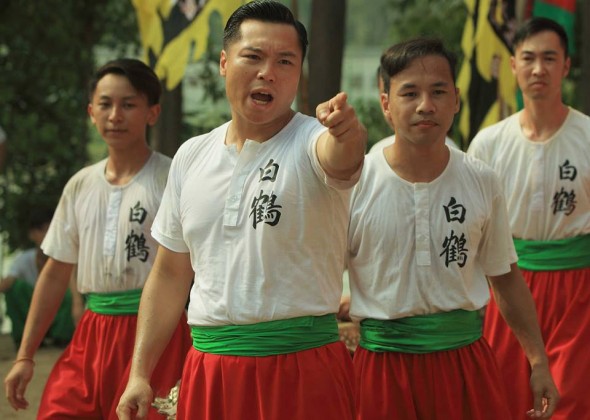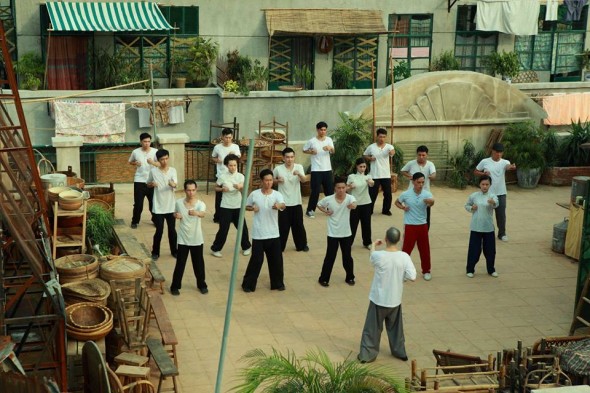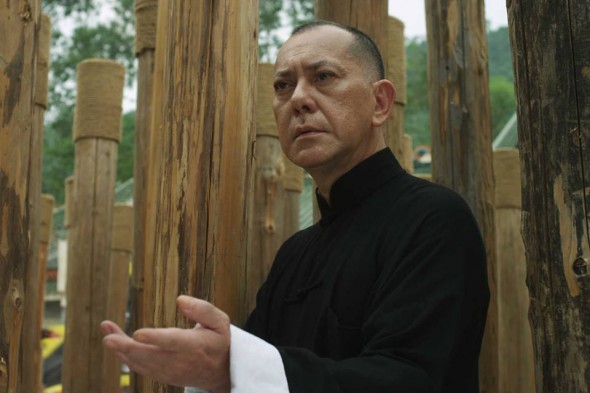
IP Man: The Final Fight – Movie Review
If you are not aware about kung-fu films, and especially considering that this is a sequel, it might be useful to know that IP Man is a concept in the world of martial arts; he is the man who taught Bruce Lee to fight – Bruce Lee, the man who went out to become a big film star and who made kung-fu immensely popular. IP Man’s story has already been recorded in a few films, where Asian action hero Donnie Yen already embodied the grand master in the first and second film of this series that turned out to be rather successful, and also some other studios have made their own versions. And of course it is never enough…
“IP Man: The Final Fight” by Herman Yau also takes a look at the life story yet against expectations, is not the full-on action flick one might presume to see. Better be aware beforehand that we rather have a drama on our hands here.
After the war, IP Man, a kung-fu master, played by Anthony Wong Chau-Sang, leaves behind his family to check out whether life in Hong Kong would be better for them than in China. Soon enough people find out what skills he beholds and encourage him to pass them on. So he does, and leads a simple, good life where he is supported by his students. They provide him with food, money, shelter and teaching space. Of course trouble is just behind the corner and he soon enough gets involved in dangerous situations where he, shockingly, has no other choice than to fight for his life and honour one last time.
Having said the film is not full-on action, there of course is action nevertheless. This, however might disappoint the kung-fu freak and gladden the viewer just in for an Asian atmosphere. The fighting scenes are not as spectacular as they usually tend to be, which does not mean they are bad, but just… less impressive. Wong Chau-Sang does not seem to be the first-choice actor to be performing in such a role either, but as this film has tilted its focus away from the action, it might have been a conscious choice. He however does a good job portraying a grand master who is the go-to person for his followers. The Hong Kong of the 1950s has been laid out in great detail yet does not focus at all on the complicated political situation in that area at that point in time. It rather wants to tell the story of IP Man and the person he was, but this idea seems to have gone lost in translation somewhere. The rather messy and bustling script hazes out the mindset and thoughts of the character, with as result a greater focus on the legend than the actual persona itself. This is perhaps rather unfortunate as Anthony Wong plays so well within the set-up restraints it is a little disappointing to see he could not exercise his full potential. When wanting to focus on the person of IP Man, the dramatic aspect could have been utilized deeper. Without wanting to over-criticize it should of course be said that it is most likely not the easiest thing to structure the reality of a person into a transmittable movie script.
Conclusion
In the array of martial arts movies, it may very well come as a disappointment to the fans. Disregarding the lack of action, they did a good job at acting and presentation, with an okay film as result, but alas, nothing more than that. IP Man is impressive as the person he was but does not convince one of that because of the mediocre script. Thanks to Anthony Wong Chau-Sang’s playful impersonation though, he becomes more than the stereotypical old kung-fu master-man that we have seen throughout so many movies. Kudos.








No Comments